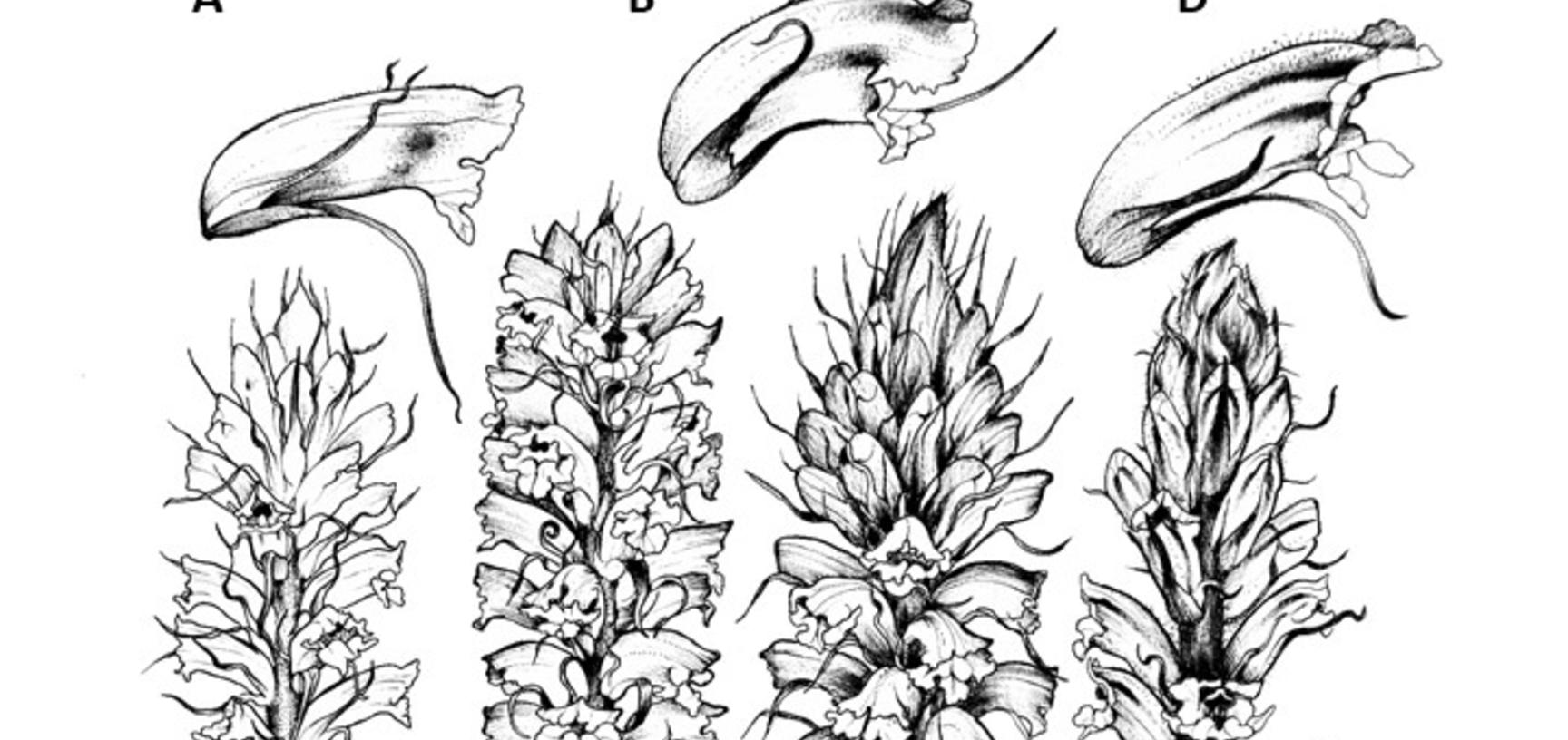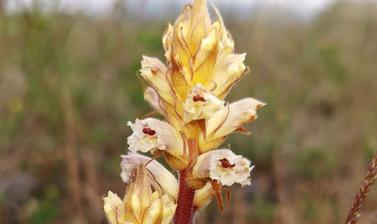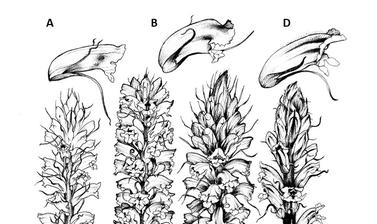New research furthers understanding of one of Britain's rarest plants
Dr Chris Thorogood, Deputy Director at Oxford Botanic Garden and Arboretum, is co-author of a new study exploring one of Britain's rarest plants, Orobanche picridis F.W. Schultz (picris broomrape). Broomrapes (genus Orobanche), are parasitic plants, meaning they lack functional leaves, and extract their nutrients from the roots of other, so-called host plants. Most broomrape species are very rare in the UK and have been neglected from conservation efforts because of perceived difficulty in their cultivation. Oxford Botanic Garden and Arboretum has a research focus on parasitic plants, and our scientists have been carrying out research on Orobanche along with botanists at London’s Natural History Museum for many years.
Orobanche picridis usually appears on inaccessible sea cliffs. This habitat affords the plant some protection, but increasing coastal erosion poses a major threat. O. picridis has been widely recorded across Southern England, but most records have proven to be erroneous due to confusion with the similar, often co-occurring, common broomrape (O. minor).
Dr Thorogood and Dr Fred Rumsey of the Natural History Museum have reviewed the past recording and confusion surrounding the plant and its apparent changing ecology in an article published in British & Irish Botany, a journal from the Botanical Society of Britain and Ireland. They present data from a 20-year survey of O. picridis populations in Kent, revealing a fifteenfold fluctuation in annual abundance. This observation, together with the recent discovery of a thriving meta-population of O. picridis in brownfield sites in South Wales, suggests that whilst populations may be declining in some locations, they are increasing in others. The authors also provide practical recommendations for conservation of this elusive and unpredictable species.









